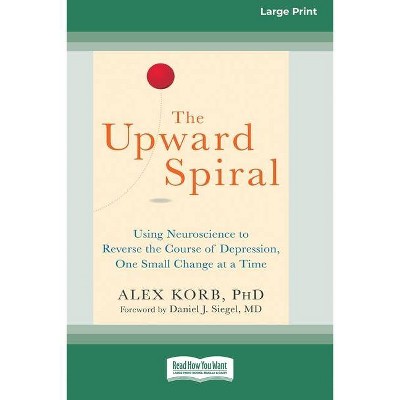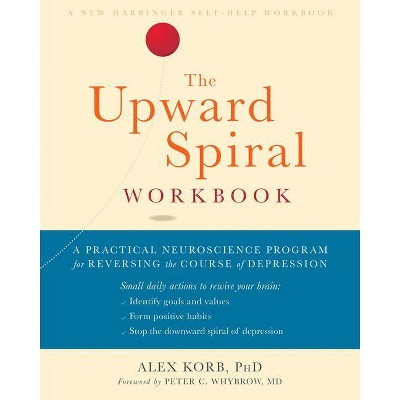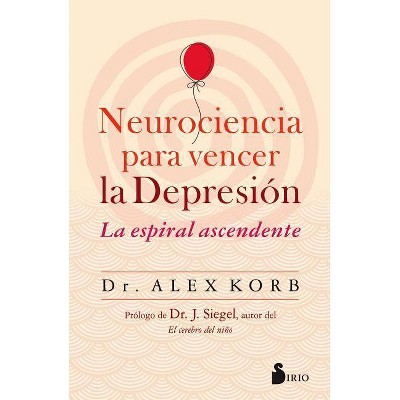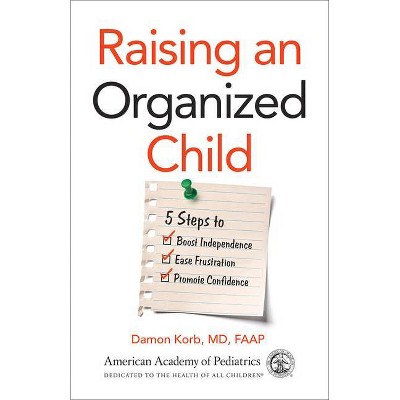The Upward Spiral - by Alex Korb (Paperback)
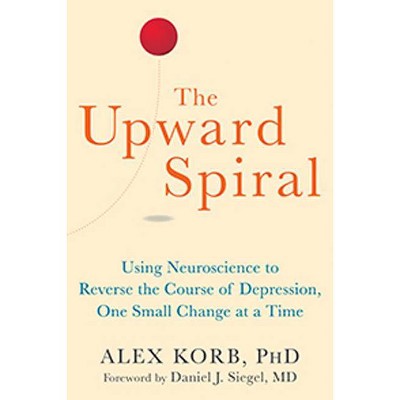
Similar Products
Products of same category from the store
AllProduct info
<p/><br></br><p><b> About the Book </b></p></br></br>Depression can feel like a downward spiral, but it's the little things that can add up to make a huge impact on recovery. In the breakthrough book, <em>The Upward Spiral, </em> neuroscientist Alex Korb demystifies the neurological processes in the brain that cause depression and offers readers small yet effective ways to ease their worst symptoms. Readers will discover there isn't "one big solution" that will solve their depression. Instead, they will learn that there are dozens of tiny steps they can take every day to reshape their brain and create an upward spiral towards a happier, healthier life.<p/><br></br><p><b> Book Synopsis </b></p></br></br><strong>Depression can feel like a downward spiral, pulling you into a vortex of sadness, fatigue, and apathy. In <em>The Upward Spiral, </em> neuroscientist Alex Korb demystifies the intricate brain processes that cause depression and offers a practical and effective approach to getting better. Based on the latest research in neuroscience, this book provides dozens of straightforward tips you can do every day to rewire your brain and create an upward spiral towards a happier, healthier life.</strong> <p/>Whether you suffer from depression or just want a better understanding of the brain, this book offers an engaging and informative look at the neuroscience behind our emotions, thoughts, and actions. The truth is that there isn't <em>one big solution</em> to depression, but there <em>are</em> numerous simple steps you can take to alter brain activity and chemistry. Some are as easy as relaxing certain muscles to reduce anxiety, or getting more sunlight to improve your mood. Small steps in the right direction can have profound effects--giving you the power to become your best self as you literally reshape your brain, one small change at a time.<p/><br></br><p><b> Review Quotes </b></p></br></br><br>"<em>The Upward Spiral</em> presents an engaging, accessible, and informative synthesis of the current thinking on depression and its treatment. A cohesive neuroscience perspective is skillfully interwoven with a practical guide to strategies that can both attenuate pathological negative moods, as well as enhance emotional well-being across the clinical spectrum." <br><strong>--Helen S. Mayberg</strong>, professor of psychiatry in neurology and radiology, and Dorothy C. Fuqua Chair in psychiatric neuroimaging and therapeutics at Emory University School of Medicine<br><br>"Alex Korb's <em>The Upward Spiral </em>is a clear and engaging explanation of the neuroscience behind depression. Korb sheds light on this mysterious and often misunderstood disorder, and, in the process, enlightens the reader about the basics of the brain and how it shapes--and is shaped by--our moods, motivations, decisions, and actions."<br><strong>--Anson Dorrance</strong>, head coach of the UNC-Chapel Hill Women's Soccer team and coauthor of <em>The Vision of a Champion</em><br><br>"Alex Korb's <em>The Upward Spiral</em> is a masterful account of the neuroscience behind depression, as well as of concrete steps that will lead to an 'upward spiral' out of depression. Korb explains neuroscience in a clear and accessible way, and shows how various brain malfunctions lead to different symptoms of depression. ... Throughout the [book], Korb circles back to some of his own experiences, making his account all the more powerful and real. This book is a must-read for those who struggle with depression and want some guidance on how to understand and manage it--as well as for therapists who want to learn more about the neuroscience of depression and its treatment."<br>--<strong>Elyn Saks</strong>, Orrin B. Evans Professor of law, psychology, psychiatry, and the behavioral sciences at the University of Southern California Gould School of Law, and author of <em>The Center Cannot Hold </em><br><p/><br></br><p><b> About the Author </b></p></br></br><strong>Alex Korb, PhD</strong>, is a neuroscientist who has studied the brain for over fifteen years, starting with an undergraduate degree in neuroscience from Brown University. He received his PhD in neuroscience from the University of California, Los Angeles, where he wrote his dissertation and numerous scientific articles on depression. He is currently a postdoctoral neuroscience researcher at UCLA in the department of psychiatry. Outside of the lab, he is a scientific consultant for the biotech and pharmaceutical industry, and is head coach of the UCLA Women's Ultimate Frisbee team. He has a wealth of experience in yoga and mindfulness, physical fitness, and even stand-up comedy. <p/>Foreword writer <strong>Daniel J. Siegel, MD</strong>, is executive director of the Mindsight Institute and associate clinical professor of psychiatry at the University of California, Los Angeles School of Medicine. He is author of <em>The Developing Mind</em>, <em>The Mindful Brain</em>, and other books, and founding editor of the Norton Series on Interpersonal Neurobiology.
Price History
Cheapest price in the interval: 14.89 on November 8, 2021
Most expensive price in the interval: 14.89 on December 20, 2021
Price Archive shows prices from various stores, lets you see history and find the cheapest. There is no actual sale on the website. For all support, inquiry and suggestion messagescommunication@pricearchive.us
